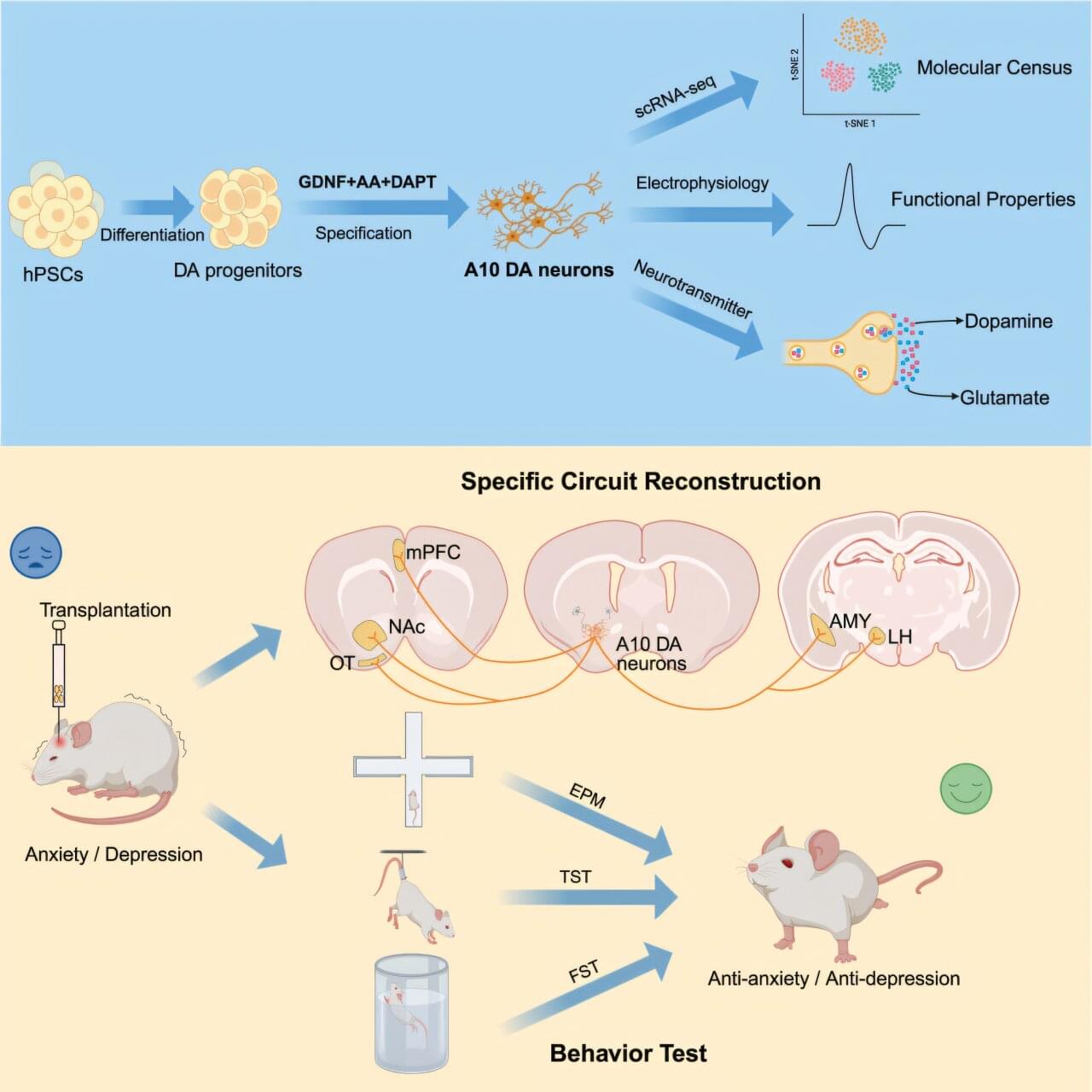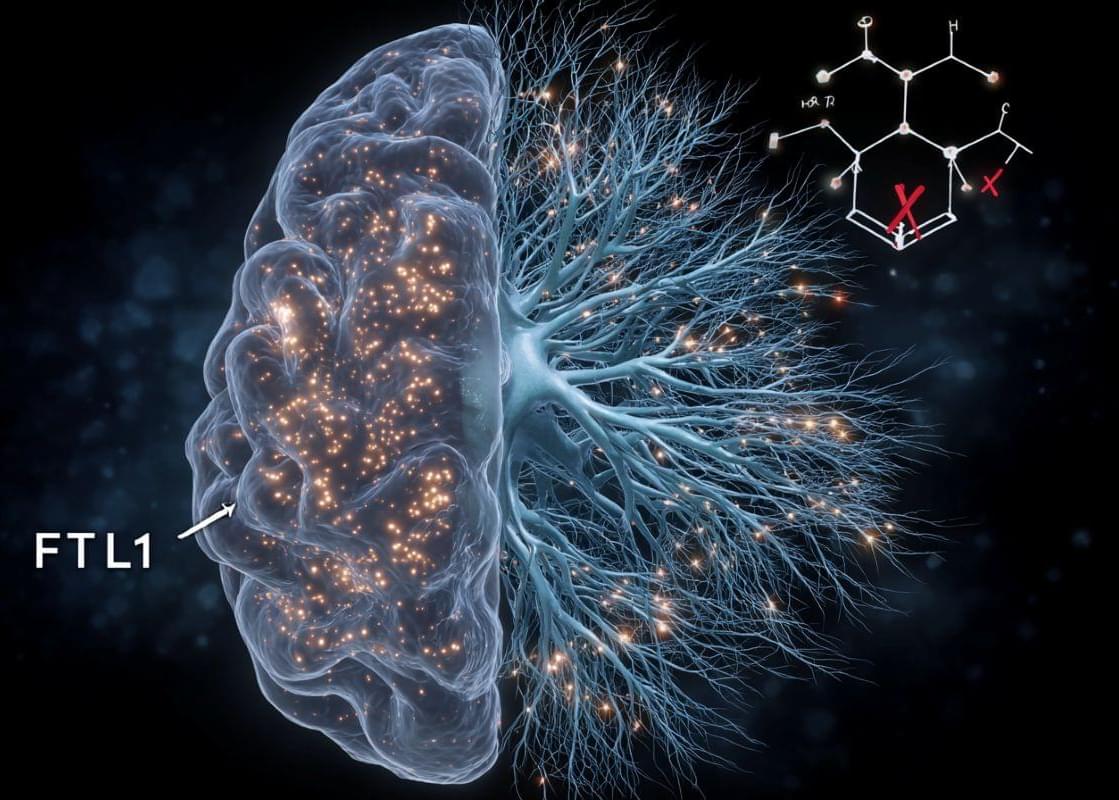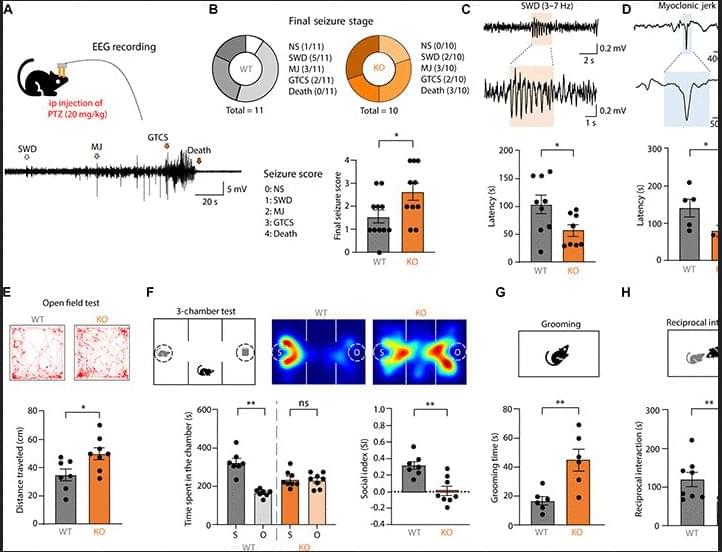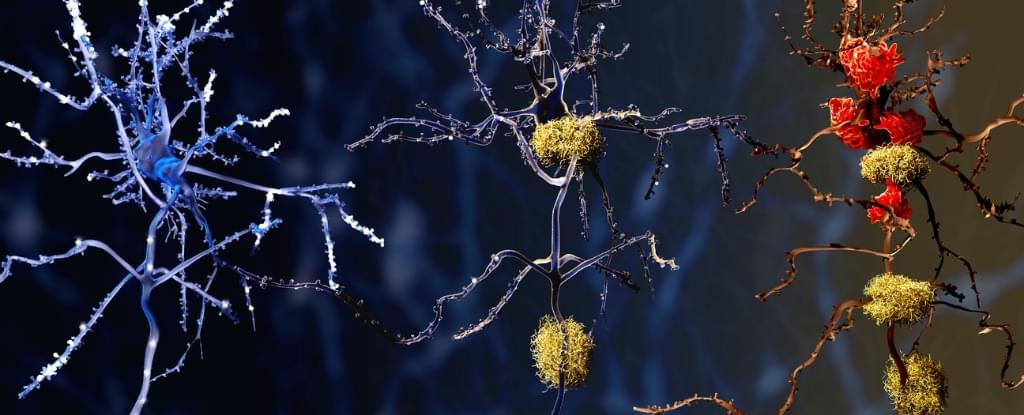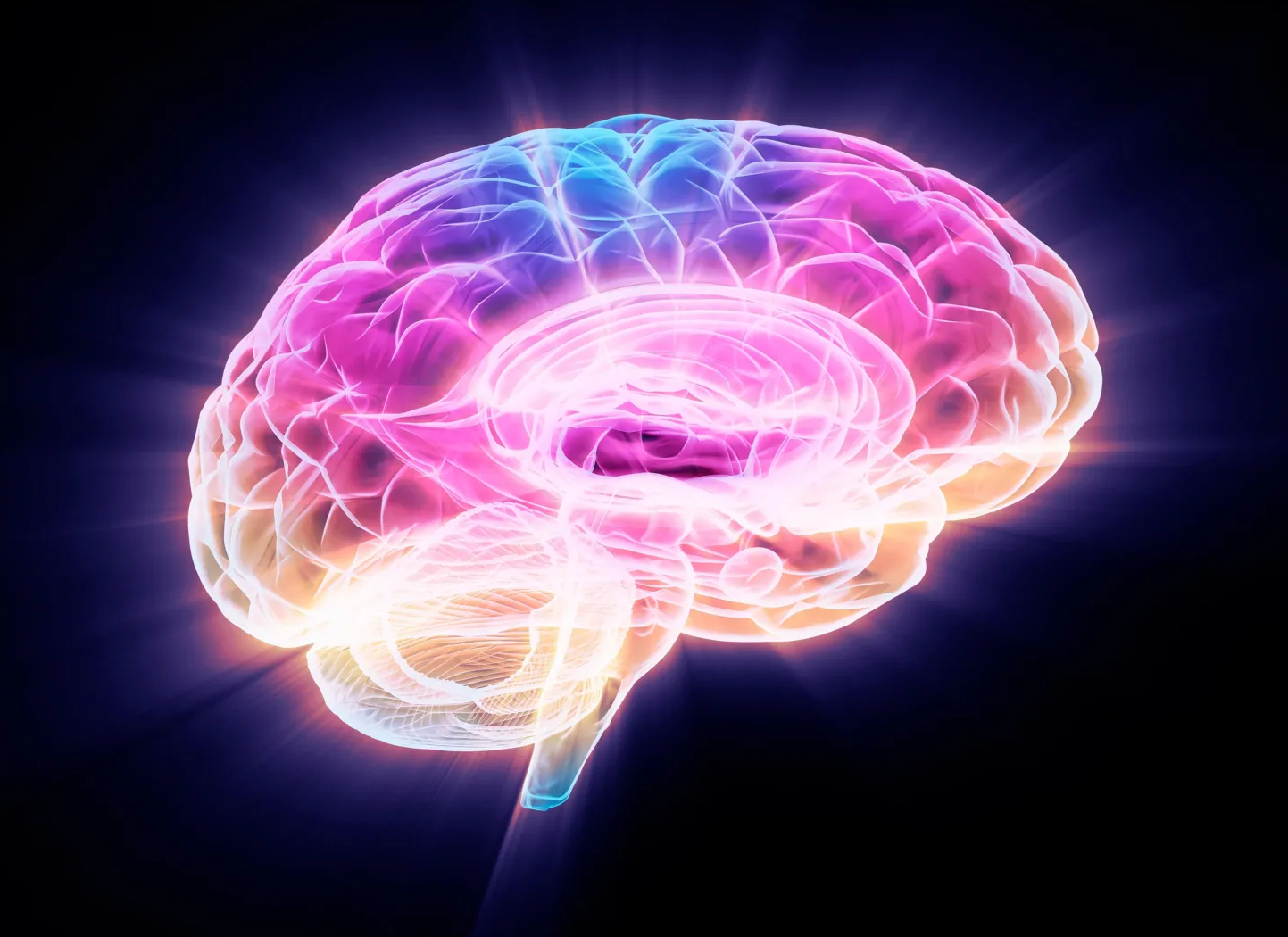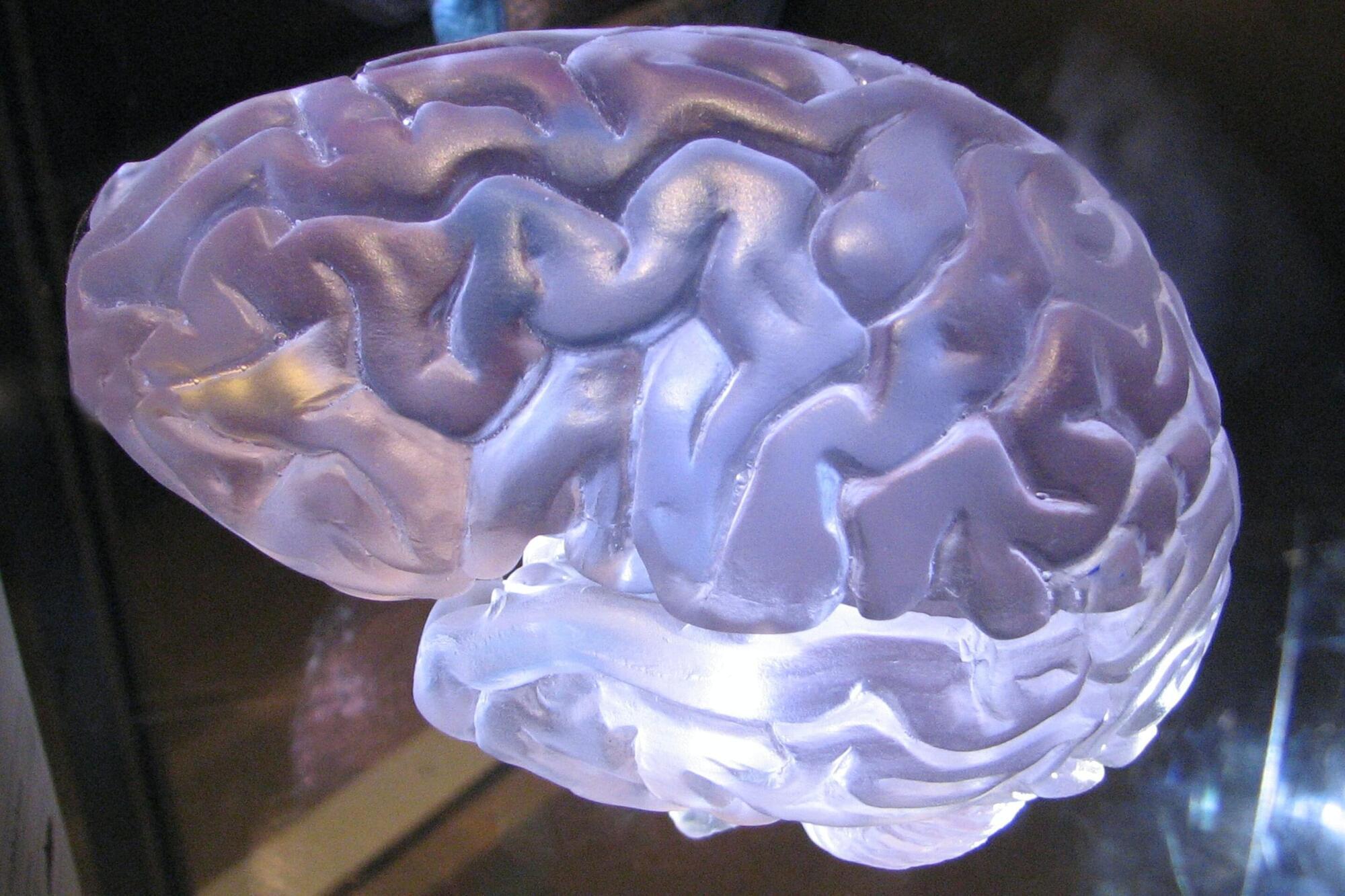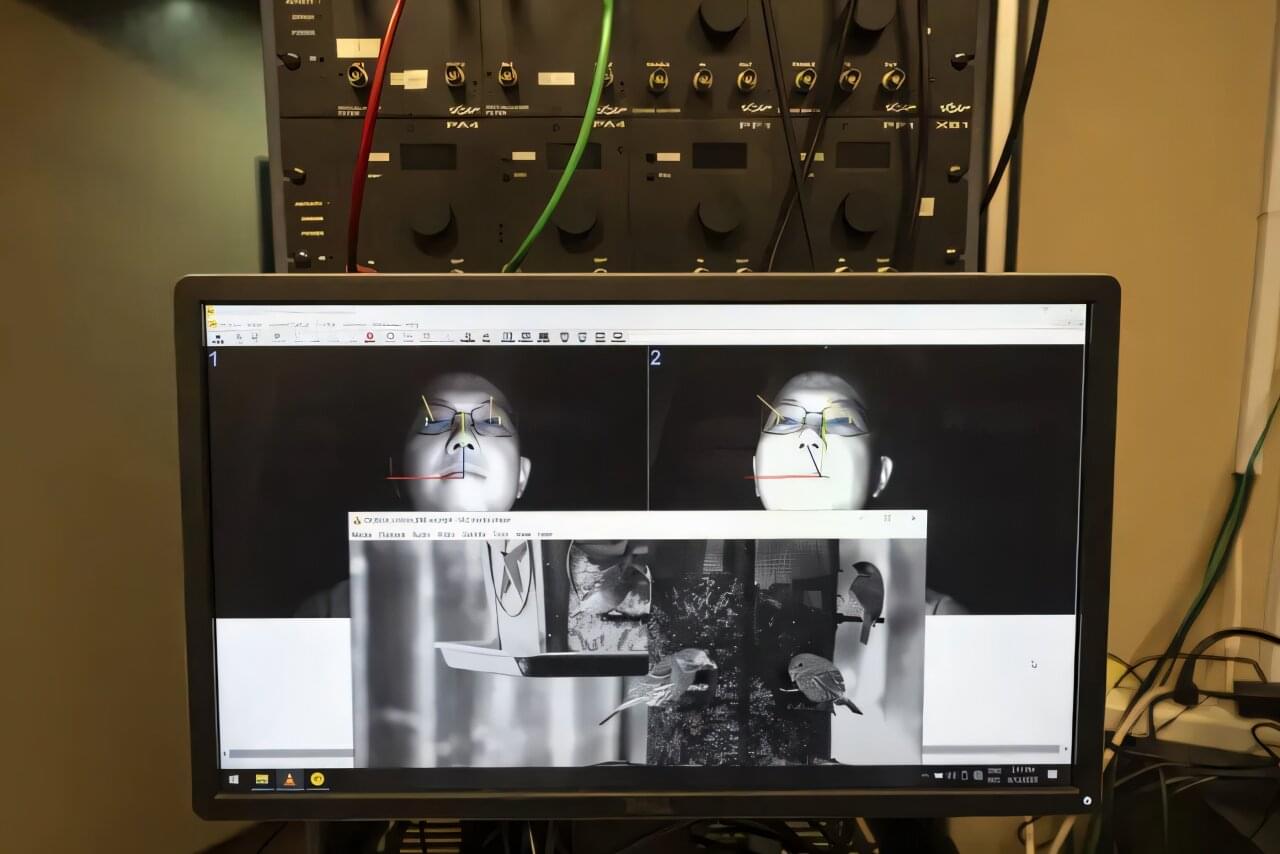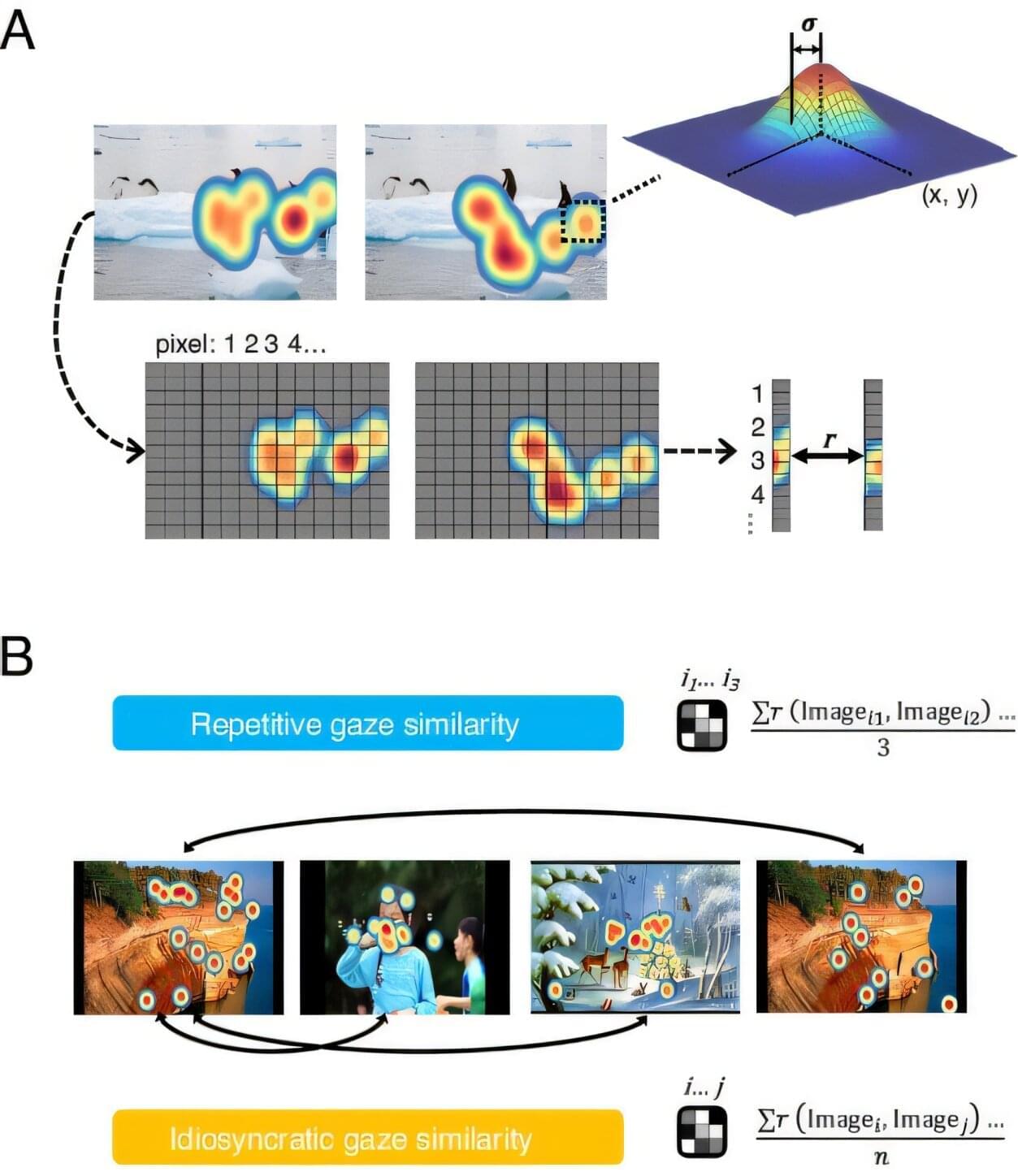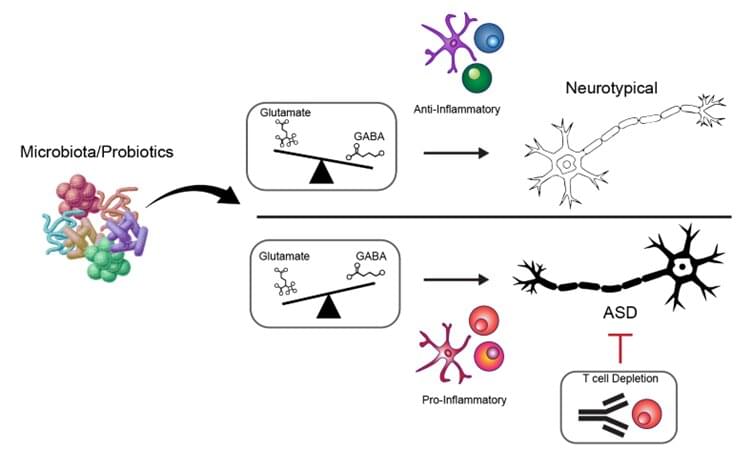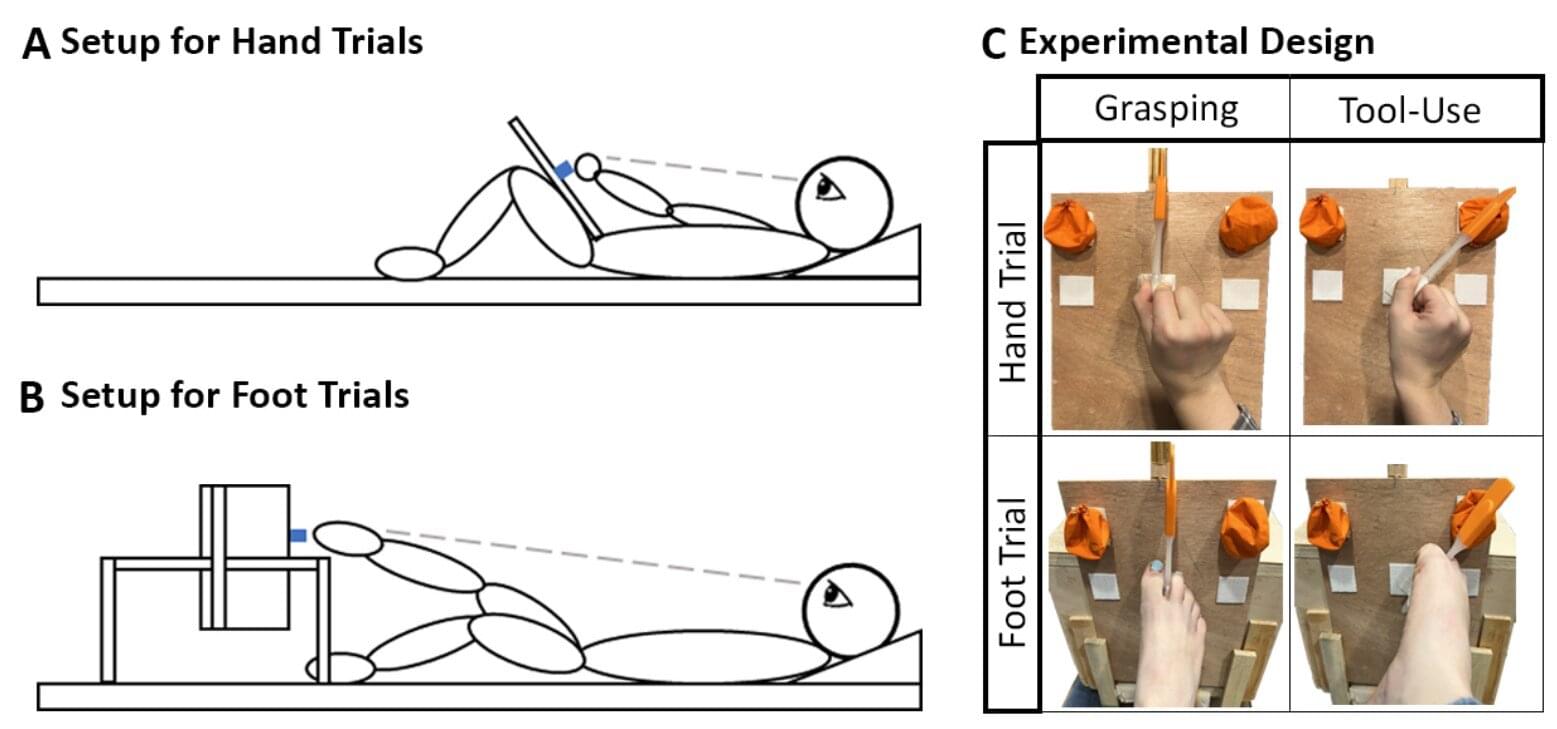The Institute of Neuroscience, Chinese Academy of Sciences, reports that human stem cell-derived A10-like midbrain dopaminergic neurons integrate into mouse mesocorticolimbic circuits and suppress anxiety and depression behaviors upon activation.
Midbrain dopaminergic neurons regulate voluntary movement, reward, motivation, cognition, and emotions. A10 ventral tegmental area neurons connect with nucleus accumbens, amygdala, olfactory tubercle, and medial prefrontal cortex. Dysfunction of the A10 system is implicated in drug addiction, schizophrenia, and depression.
Human pluripotent stem cells enable fresh production of disorder-relevant neurons, with previous success in enriching A9 neurons for Parkinson’s disease therapy. Efficient differentiation of human A10 dopaminergic neurons remains elusive.
